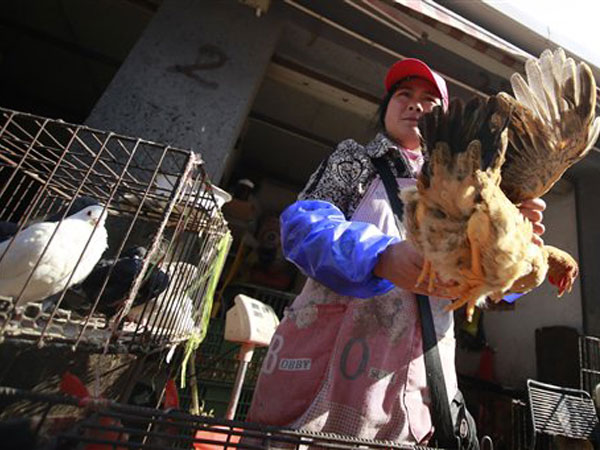China poultry banned; PH still bird flu-free
MANILA, Philippines — The Department of Agriculture (DA) activated a temporary ban on live birds, poultry meat, chicks, eggs and semen imports from China to keep the Philippines bird flu-free.
A highly contagious sub-type of the avian influenza virus has affected poultry in China’s Hebei province as confirmed by Beijing’s Ministry of Agriculture in China in a report to the World Health Organization (WHO).
In a copy of Memorandum Order 2014-01, the DA announced an “immediate suspension” of the processing, evaluation of the application and issuance of Veterinary Quarantine Clearance to import poultry commodities from China. DA veterinary quarantine officers at Philippine air and sea ports will stop and confiscate all shipments of affected commodities “with the exception of heat treated products,” according to the order.
“There is a need to prevent the entry of HPAI (highly pathogenic avian influenza) virus to protect the health of the public and the local poultry population,” said Agriculture Proceso J. Alcala, adding that travelers might bring in birds and related products into the country.
DA cited an official report from China of an outbreak of the HPAI virus (subtype H5N2) among bird species in Hebei province. The Harbin Veterinary Research Institute of the Chinese Academy of Agricultural Sciences confirmed the virus and its sub-type. Dr. Zhang Zhongqui, director-general of the Ministry of Agriculture’s China Animal Disease Control Center, has informed the World Animal Health Organization of the case, the DA said.
Other sub-types of the virus have made international news headlines and there is concern the growing number of bird flu cases could pose a health threat as the annual human migration for Chinese New Year starts. Various countries are presently racing to protect their borders and prevent entry of the virus strain.
The Philippines, along with Brunei and Singapore, are the only bird flu-free countries in Southeast Asia. The Food and Agriculture Organization has said that while the Philippines has remained bird flu-free for years, it must keep protecting its borders especially since it has a long coastline that makes it vulnerable to informal barter trade and even outright smuggling.
Avian influenza, commonly known as bird flu, is highly contagious. Those infected show symptoms such as fever, sore throat or cough and progressive difficulty of breathing.
In early 2009, a global flu pandemic was found to be caused by a new virus called AH1N1, which was made up of genetic elements from four different flu viruses – North American swine flu, North American bird, human flu, and the swine flu virus typically found in Asia and Europe.
RELATED STORIES
PH bans poultry from China amid bird flu scare
